Guide

Page i Page ii
DIGITAL HUMANITIES
The Digital Humanities series provides a forum for groundbreaking and benchmark work in digital humanities, lying at the intersections of computers and the disciplines of arts and humanities, library and information science, media and communications studies, and cultural studies.
Series Editors:
Julie Thompson Klein, Wayne State University
Tara McPherson, University of Southern California
Paul Conway, University of Michigan

Teaching History in the Digital Age
T. Mills Kelly
Hacking the Academy: New Approaches to Scholarship and Teaching from Digital Humanities
Daniel J. Cohen and Tom Scheinfeldt, Editors

DIGITALCULTUREBOOKS, an imprint of the University of Michigan Press, is dedicated to publishing work in new media studies and the emerging field of digital humanities.
Page iii
Hacking the Academy
NEW APPROACHES TO SCHOLARSHIP AND TEACHING FROM DIGITAL HUMANITIES
Edited by
Daniel J. Cohen and Tom Scheinfeldt
The University of Michigan Press
Ann Arbor
Page iv
Copyright by Daniel J. Cohen and Tom Scheinfeldt 2013
Some rights reserved

This work is licensed under the Creative Commons Attribution-Noncommercial-No Derivative Works 3.0 United States License. To view a copy of this license, visit http://creativecommons.org/licenses/by-nc-nd/3.0/ or send a letter to Creative Commons, 171 Second Street, Suite 300, San Francisco, California, 94105, USA.
Published in the United States of America by The University of Michigan Press
Manufactured in the United States of America
 Printed on acid-free paper
Printed on acid-free paper
2016 2015 2014 2013 4 3 2 1
A CIP catalog record for this book is available from the British Library.
DOI: http://dx.doi.org/10.3998/dh.12172434.0001.001
Library of Congress Cataloging-in-Publication Data
Hacking the academy : new approaches to scholarship and teaching from digital humanities / edited by Daniel J. Cohen and Tom Scheinfeldt.
pages cm. (Digital humanities)
Includes bibliographical references.
ISBN 978-0-472-07198-2 (cloth : acid-free paper) ISBN 978-0-472-05198-4 (pbk. : acid-free paper) ISBN 978-0-472-02947-1 (e-book)
1. Communication in learning and scholarshipTechnological innovations. 2. Scholarly electronic publishing. 3. HumanitiesInformation technology. 4. HumanitiesDigital libraries. 5. HumanitiesResearch. I. Cohen, Daniel J. (Daniel Jared), 1968II. Scheinfeldt, Tom.
AZ186.H33 2013
001.2dc23 2013001475
Page v
Contents
DANIEL J. COHEN AND TOM SCHEINFELDT
TAD SUITER
JASON BAIRD JACKSON
DAVID PARRY
JO GULDI
MICHAEL O'MALLEY
MATTHEW G. KIRSCHENBAUM, MARK SAMPLE, DANIEL J. COHEN
JOHN UNSWORTH
KATHLEEN FITZPATRICK
DANIEL J. COHEN, STEPHEN RAMSAY, KATHLEEN FITZPATRICK Page vi
CHAD BLACK AND MARK SAMPLE
MILLS KELLY
TOM SCHEINFELDT
GIDEON BURTON
JEFF JARVIS
MICHAEL WESCH
MILLS KELLY, DAVID DORIA, REY JUNCO
JEFF MCCLURKEN, JEREMY BOGGS, ADRIANNE WADEWITZ, ANNE ELLEN GELLER, JON BEASLEY-MURRAY
MARK SAMPLE AND KELLY SCHRUM
CATHY DAVIDSON
GARDNER CAMPBELL
MATT GOLD AND JIM GROOM
ANASTASIA SALTER
LARRY CEBULA Page vii
BRIAN CROXALL AND DAVID PARRY
BETHANY NOWVISKIE
ETHAN WATRALL, JAMES CALDER, JEREMY BOGGS
KATHLEEN FITZPATRICK, JASON B. JONES, MATTHEW G. KIRSCHENBAUM, AMANDA FRENCH
ANDREW ASHTON
CHRISTINE MADSEN
CHRISTOPHER J. PROM
STEPHEN RAMSAY AND ADAM TURNER
SHARON LEON
ETHAN WATRALL, KATHLEEN FITZPATRICK, DAVID PARRY
JENNIFER HOWARD
TIM CARMODY- Page viii
Page 1
Introductions
Page 2 Page 3
Preface
Daniel J. Cohen and Tom Scheinfeldt
On May 21, 2010, we posted these intentionally provocative questions online:
Can an algorithm edit a journal? Can a library exist without books? Can students build and manage their own learning management platforms? Can a conference be held without a program? Can Twitter replace a scholarly society?
We asked for contributions to a collectively produced volume that would explore how the academy might be beneficially reformed using digital media and technology. The process of creating the edited volume itself would be a commentary on the way things are normally done in scholarly communication, with submissions coming in through multiple channels, including blogs, Twitter, and email, and in multiple formatseverything from a paragraph, to a long essay, to multimedia. We also encouraged interactivitythe possibility that contributors could speak directly to each other, rather than creating the inert, isolated chapters that normally populate edited volumes. We then sent out notices via our social networks, which quickly and extensively disseminated the call for submissions. Finally, we gave contributors a mere seven daysthe better to focus their attention and energy.
Between May 21 and May 28, 2010, we received a remarkable 329 submissions from 177 authors, with nearly a hundred submissions written during the weeklong event, and the other two-thirds submitted by authors from their prior writing on the subject matter. This struck us as a major success for an untested modelone that we feel could be replicated to provide state-of-the-field volumes in many disciplines, to open debate in ways that journals and books are unable to do, or to aggregate existing works from around the web on a common theme.
From this large pool of contributions we have assembled what we consider Page 4 to be the best works of any size and shape (with the unfortunate exception of audio and video, which we could not put into print). Only one-sixth of the contributions made the cut; in general, we sought writing that moved beyond mere complaints about the state of the academy into more careful diagnoses and potential solutions. There are some rants, to be sure, but also many calm analyses of how academia could work differently.
Some biases undoubtedly exist in this volume. Because of whom we were able to reach during the event week, and how we reached them (mostly through blogs and Twitter), this book is largely written from the perspectives and concerns of our follow travelers in digital humanitiesalthough this is a rather varied bunch, including scholars, educational technologists, librarians, and cultural heritage professionals. It is obviously the product of people deeply involved in the digital realm, and who look to that realm for addressing problems, rather than, say, labor unions.
We believe that the small window for submissions and the excitement about trying to reconceive how an edited volume might be put together lend this book a vibrancy and intensity (and yes, occasionally a stylistic informality) that might have been missed if we had had a standard yearlong call for contributions, followed by arm-twisting for another year or two. This volume thus represents a good snapshot of how scores of engaged academics who care deeply about higher education are trying to further its original goals of learning, scholarship, and service, albeit in novel ways that may be uncomfortable for those with a more conservative bent.

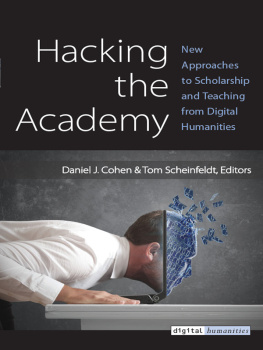
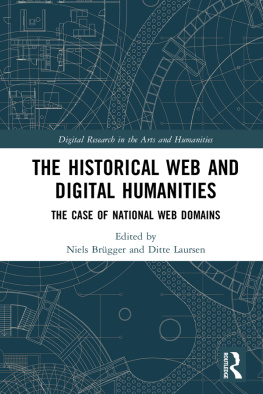
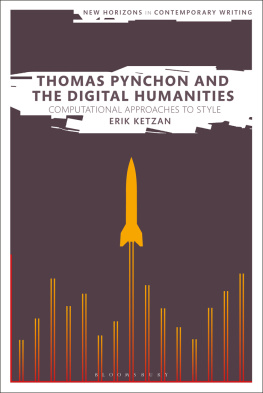
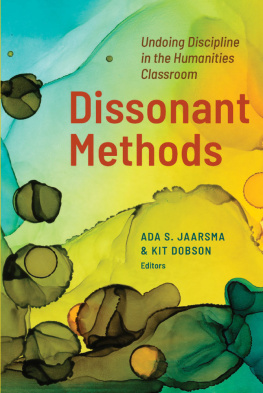

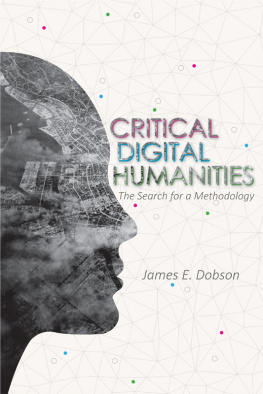
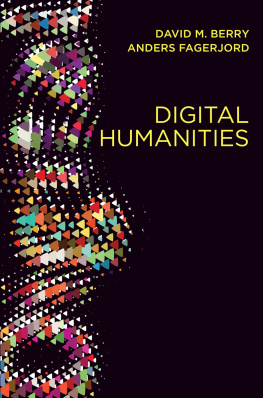
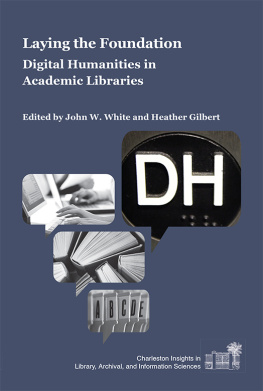

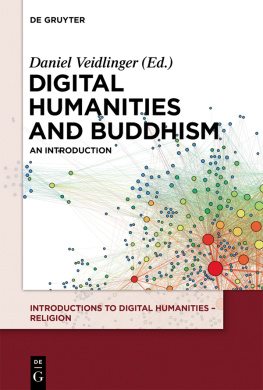
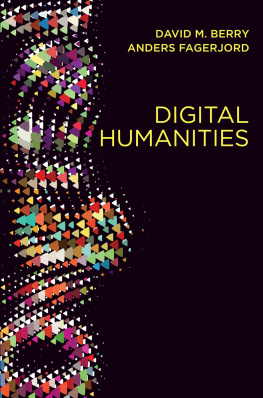
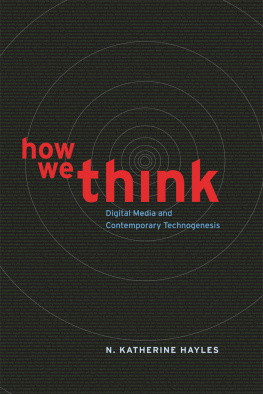
 Page i Page ii
Page i Page ii 

 Printed on acid-free paper
Printed on acid-free paper